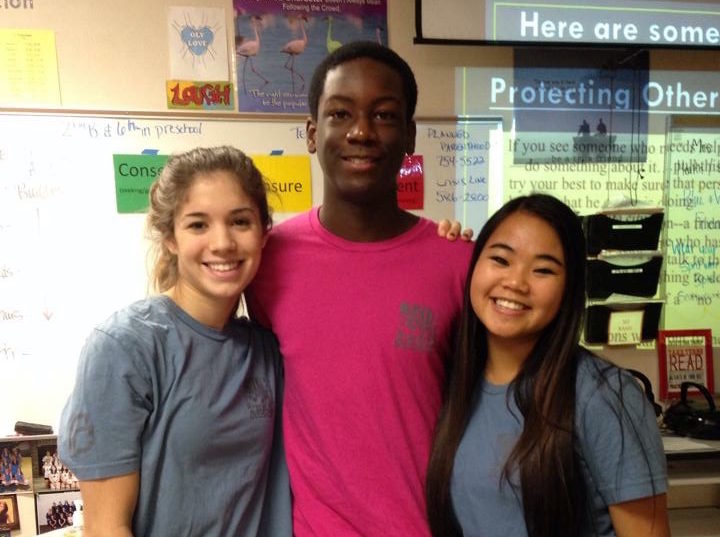Thurston County Teen Council members are breaking the stereotypes of traditional sexual education. Instead of having teachers present students with information through worksheets and slideshows, Teen Council members lead discussions and activities for student audiences to give them access to a comprehensive, peer-led sexual education.
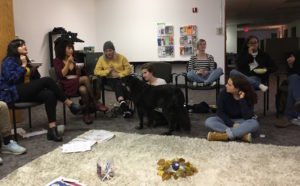
Once a week, about seventeen students from around the county meet to confer and broaden their horizons on topics such as consent and sexuality. These meetings provide the Teen Council members with an in-depth understanding of the complex issues and help the students see different perspectives on many controversial matters. For member Hope Dorris, Teen Council has provided a facet to connect and get involved with her community. While Dorris, who has been in Teen Council for the past three years, values the weekly meetings, she feels the most meaningful part is the community outreach.
Taking what they’ve learned from their trainings, the teens go in small groups to local schools to spread the content with peers. Teen Council members give presentations in the community about twice a month. A typical presentation consists of a mix of sharing information, engaging students in activities and answering anonymous questions from the class. The Teen Council members cover a wide range of topics surrounding sexual education, but a focus of the presentations is consent.
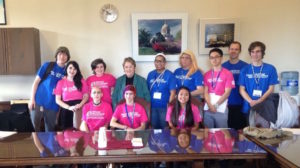
Dorris believes messages about consent are the most crucial to spread to teens today. “I think a lot of the consent issues are from a lack of communication. You should never just assume where someone is at if you don’t know,” she expresses. Teen Council not only educates students on verbal consent, but they explain the importance of body language and other nonverbal communication signals between partners. Many students the Teen Council presents to are experiencing their first physical and romantic relationships. This makes the messages they present even more relevant. Dorris feels “especially for students getting ready to go to college, clear communication and consent are super important.”
While Teen Council members have specific lessons they address during presentations, unexpected topics often come through the anonymous question session. Students are given blank pieces of paper on which to write questions. These are then picked up by the Teen Council presenters, regardless of whether the students write questions or not. This method seems to be effective. “We get anonymous questions in almost every presentation we do,” Dorris says.
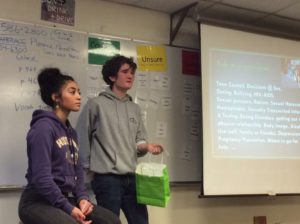
Once the presenters have received the inquiries, they divide up the questions into four categories: slang, technique, facts, and values. While some of the questions are straight-forward and can be easily answered, questions in the values category present the biggest challenge. “Value questions are the hardest because everyone has such a wide variety of beliefs on the subjects we talk about,” shares Dorris. Teen Council students need to be able to answer the questions professionally, without offending anyone, while still reinforcing central and important messages. Subjects like abortion, contraceptives and sexual orientation often prove the most challenging for the presenters. “We want to make everyone feel valid and comfortable, no matter what their opinion is,” Dorris says.
One of the most common questions Teen Council members receive is, “What’s the right time to have sex?” Dorris considers many different factors when answering this question, but ultimately feels it’s different for every person. To answer questions like this one, students must leave their personal opinions at the door. “In order to give a fair opinion and answer, you can’t use your bias,” Dorris explains.
The high-rate of anonymous questions asked by students at the end of presentations and constant requests by teachers to have Thurston County Teen Council members present to their classes prove that peer-led sexual education seems to be effective. When I asked Dorris if she felt students were more receptive to sexual education if the lessons come from their peers, she had a simple and confident response: “Yes, absolutely.”
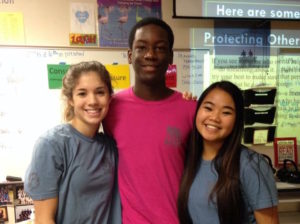
It’s difficult for students to relate to teachers during sexual education as it is hard to see a teacher as having been a teen – someone their age, faced with similar issues and concerns. This shared sentiment between Dorris and many other students is why the lessons given in health class are often disregarded by teens, especially when the messages surround topics like consent, sexuality and sexual activity.
According to Dorris, Teen Council helps conquer this issue saying, “If you are learning from your peers who are in the same culture or situations that you are in, it can be easier to relate to them. This is why peer education is so important.”
Contact the Thurston County Teen Council by calling Tim Mcleod at 360-870-5941 to learn more or to schedule a presentation.







































